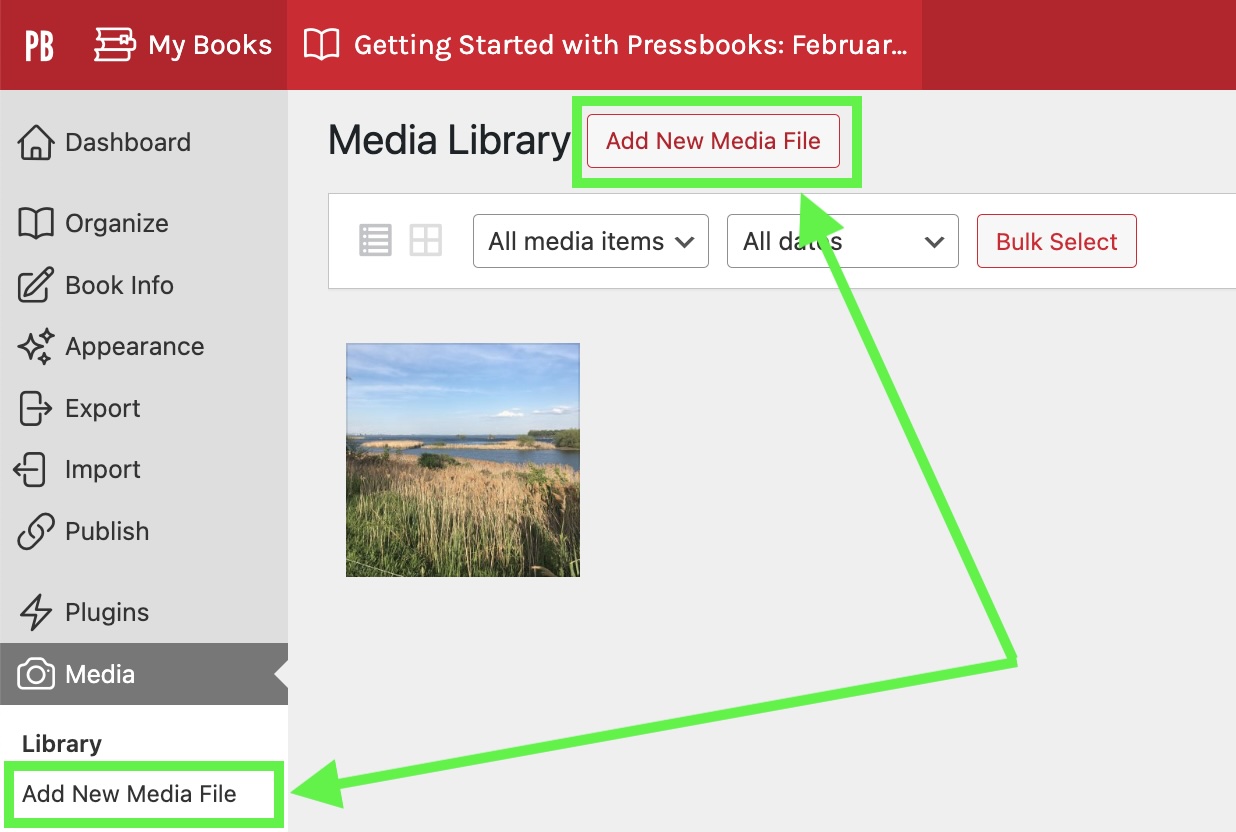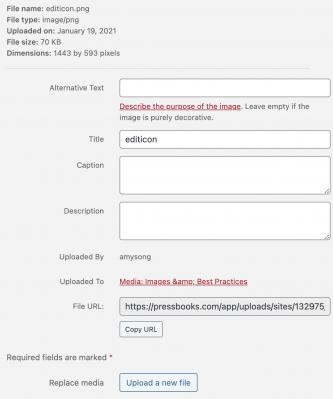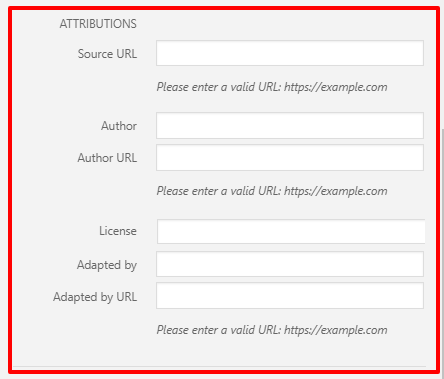14 the
📌 Plan requirement: Enterprise, Collaboration, Single Author
Pressbooks allows you to publish all or parts of your book to the public web, customising privacy settings as needed. You can set your overall book to Public or Private. You can set individual chapters to be displayed in the webbook or kept hidden. Finally, you can determine whether collaborators on your book can view private content within it.
Global Privacy Settings
In your book’s admin menu, click Media to view your Media Libarary.
The Media Library allows you to view and edit your book’s media. By default, the files are sorted by the most recent. Through the toolbar at the top of the Media Library window you can search for, filter and sort your media.
| Display Media Library files as a list | |
| Display Media Library files as a grid | |
| Filter Media Library by media type | |
| Filter Media Library by upload date | |
| Search your Media Library by filename, title, caption, or any other details you have included with your attachments. |
Add Media to your Media Library
- In your book’s admin menu, click Media
- Click Add New Media File
- Click Select Files
A window to select files from your computer opens. - Navigate to and select the file(s) you want to upload and confirm.
✔️ The media file is imported and displays in the Media Library
Note: On most Pressbooks networks, the maximum upload size for a single attachment is 25 MB. This limit may be lower, depending on your network manager’s preferences. If you have questions about file upload limits, contact your network manager.
Alternatively to steps 3 and 4, you can drag and drop files directly onto the Media Library window to upload them.

Adding details to your media
Selecting any media in your Library allows you to add important details to your attachment as well as editing them. Clicking on an attachment will bring up the Attachment Details menu.
The right side of the Attachment details menu includes fillable fields to include more information about the media. This includes a title, caption, and description field. (The description field is not publicly displayed in books, but can be used for internal reference.)

At minimum, you should include Alternative Text (also known as alt text) for all non-decorative images. Alt text is useful for users that are visually impaired and using screen readers, allowing them to understand the content of a media attachment. Learn more about alt text principles from WebAim.
If you are using media that you did not create yourself, there are also fields available to include attribution for the media, including a source URL, author details, and licensing information.

Editing Images
You can edit some aspects of images you have uploaded within your media Library. You can do so by selecting an attachment within your Library to open the Attachment details menu and selecting Edit Image, found below the preview of your media.
You can perform edits like cropping, rotating, or flipping your media as well as changing the scale or aspect ratio. Once you are satisfied with any edits, click Save to return to the Attachment details menu.

Deleting media
To delete a single attachment, select it in the media Library to bring up the Attachment details menu. Scroll to the bottom of the right side menu and click Delete permanently.
To delete multiple attachments at once, click Bulk Select in the toolbar of the media Library. You can now select one or many attachments you wish to delete, then click Delete permanently.
